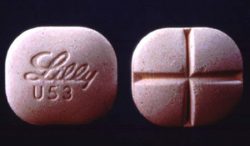Why Methadone Maintenance Works
Evaluated as a medical response to the post-World War II heroin epidemic, methadone maintenance has been an effective method of opiate addiction treatment since the mid-1960s. The treatment, also known as MMT or Methadone Maintenance Treatment, works by eliminating the use of heroin or opiates, reducing death rates associated with drug overdose and improving social productivity of users by eliminating opiate addiction and offering a new outlook on life. Proponents of methadone maintenance claim that the treatment reduces the transmission of infectious diseases that are typically associated with the intravenous use of heroin or other opiate drugs.
Methadone Maintenance Works Because:
Primarily, methadone maintenance works by relieving the narcotic craving and blocking the euphoric effects that are associated with heroin use. Deemed medically safe and non-sedating, methadone maintenance is considered one of the most effective treatments for chronic heroin or opiate addiction and is even indicated for pregnant women who are addicted to heroin. But why does MMT work?
There are considered two primary reasons why methadone maintenance works. First, the ridicule of taking methadone to control an opiate addiction is simply not a factor—the fact is, the patient who takes methadone rather than heroin or other opiates is instantly relieved of the ridicule and the criminal accusations that come from being an addict. In fact, methadone maintenance instantly places an addict into the category of “recovering addict” which takes the pressure off of the previous role of heroin addict or opiate addict.
 Another reason why methadone maintenance works and is effective is due to the reduction in cost. The total cost of a methadone maintenance treatment program is typically about $1 per day for the user. This is significantly lower than the average habit of $250 a day for a heroin addict. In fact, methadone clinics are able to provide methadone to patients at a cost of about ten cents per daily dose and in many cases, the medication is provided to patients free of charge.
Another reason why methadone maintenance works and is effective is due to the reduction in cost. The total cost of a methadone maintenance treatment program is typically about $1 per day for the user. This is significantly lower than the average habit of $250 a day for a heroin addict. In fact, methadone clinics are able to provide methadone to patients at a cost of about ten cents per daily dose and in many cases, the medication is provided to patients free of charge.
Don’t Be Taken by Surprise: Methadone is Addictive
One thing that many people do not consider is the fact that methadone is addictive and although this does pose some potential risks for the user, it also poses some benefits. Because methadone is addictive, most users will not just abruptly stop taking the drug and resort to heroin use which means that the risk of relapse is actually reduced with a methadone maintenance program versus opiate antagonist treatment programs. Opiate antagonists such as naloxone or cyclazocine are non-addictive and therefore easy for the addict to stop taking and quickly relapse back to their old use of heroin or other opiates.
It is important to keep in mind that methadone is addictive and therefore, a methadone maintenance program is expected to be the primary method of treatment for a prolonged period (perhaps an unspecified period) of time if the user chooses this method of treatment for addiction recovery. Because methadone does have many physically addictive characteristics, users are encouraged to expect to take the medication for an unspecified time and when ready to stop, should taper the drug off under doctor supervision to avoid withdrawal symptoms.